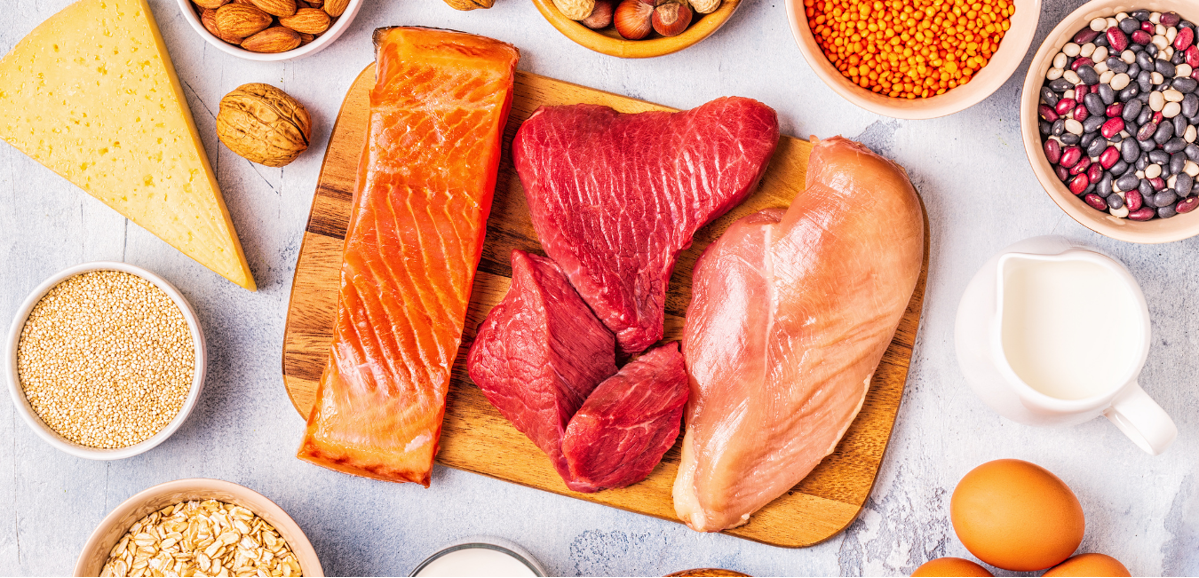As a fertility dietitian I spend a lot of time helping women learn, manage and restore their cycles. However they are also a group of women who experience premenstrual syndrome symptoms before their period who really struggle with the side effects of hormonal fluctuations. For some women these symptoms can be a lot more severe and problematic than others. Common complaints are headaches, fatigue, mood changes and an increase in food cravings of sugar, alcohol and carbohydrates.
Women who experience these symptoms are more sensitive to the hormonal changes in their menstrual cycle. The good news is diet can improve and help to manage PMS symptoms.
How do your hormones impact your body?
The average menstrual cycle is 28 days. However this may range from 21 to 34 days and even longer for some women who have hormonal conditions such as polycystic ovarian syndrome (PCOS). The menstrual cycle has two phases, the follicular phase and the luteal phase.
The follicular phase begins from day one (when menstruation begins) through day 13 (the day before ovulation). The luteal phase, which typically occurs from days 15 to 28, is associated with PMS.
This is believed to be due to an increased sensitivity to the rise and fall of estrogen (female hormones) and progesterone levels (a hormone needed in early stages to support and maintain a pregnancy.) If conception does not occur the reduction in the progesterone levels also affects other functions in the body that impact the messages to the brain involved in regulating mood and behavior. This is the period of time that can be most symptomatic.
Additionally, this is why women often report these symptoms of irritability, low mood, and food cravings 1-2 weeks prior to menstruation. The process is supported by vitamins, minerals and fatty acids-which can influence the amount of circulating hormones.
Here are my 5 tips to help relieve your symptoms
Tip 1: Include 2-3 serves of oily fish week
Increasing omega 3 fatty acids in your diet has been shown to reduce inflammation and boost mood.
Try: Swapping your fish and chip night for a baked salmon recipe. Salmon is easy to cook and a great addition to a variety of bases including rice or quinoa.
Tip 2: Check your Iron levels
Research shows low iron can acerbate the effects of hormonal changes particularly fatigue and period pain. It is also a mineral that is important for pregnancy. Requirements are almost double for pregnancy! If you want to conceive, now is a great time to optimize your diet to not only manage PMS but to prepare your nutrient stores for your baby.
Iron supplements may be needed if your levels are low and may cause constipation which is already a struggle for women when they are pregnant. See your local GP to determine your levels and work with a fertility dietitian to prescribe the right dosage for you.
Additionally foods such as red meat, liver, poultry and eggs are a great source or iron followed by plant sources such as spinach, dried fruit, whole meal pasta and bread to name a few.
Lastly fish, shell fish and oysters are also high in iron and zinc. Low zinc levels have also been associated with increased PMS symptoms so treat yourself to oysters before your period arrives.
Tip 3: Increase soy foods
Soy foods can improve the estrogen and progesterone ratio and PMS symptoms for some women.
Try adding some plant protein in your diet like tempeh or tofu in a stir-fry or soups. My personal favorite is edamame beans as a nourishing on the go snack!
Tip 4: Try a B6 and Mg2 supplement
Both supplements have been shown to improve symptoms. However I recommend trying one at a time for at least three months to determine a benefit.
Also see your GP or a fertility dietitian to determine what’s really best for you.
Tip 5: Boost your Calcium intake
The strongest evidenced based dietary recommendation is focusing on meeting your calcium intake. Aim for 2-3 serves a day of calcium such as yoghurt, milk and cheese. Women who met and increased their calcium requirements to 1000-1200mg per day experienced a 50% reduction in PMS symptoms.
If you are vegetarian or vegan here some plant based sources of calcium to include: Broccoli, kale, soy beans, soy milk and milk alternatives fortified with calcium.
In addition if you know that you might not be meeting your calcium needs it is important to seek tailored nutrition advice as calcium is also important for fertility. As you can see there is plenty that we can do to help improve your symptoms of PMS with diet! Give one of these tips ago!
If you are thinking of conceiving and want to learn more about how diet impacts your cycle and your fertility, start planning the journey with a fertility dietitian.




